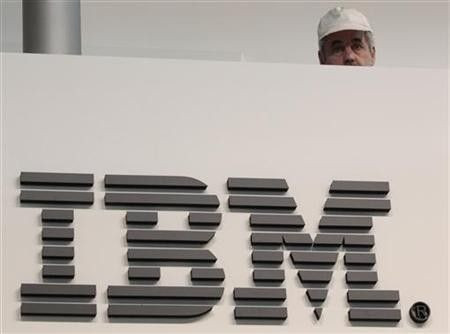IBM To Develop Computers That Can Issue a Tsunami Warning, Spot Spoiled Food

IBM continues to dominate the field of artificial intelligence with the development of cognitive computers that can learn and make decisions -- but the company insists it is not trying to simulate an actual human brain.
Each neuron in the brain is a processor and memory, and part of a social network, but that's where the brain analogy ends. We're not trying to simulate a brain, IBM spokesperson Kelly Sims told Wired. We're looking to the brain to develop a system that can learn and make sense of environments on the fly.
IBM announced in a press statement Thursday it has been awarded $21 million dollars from the Defense Advanced Research Projects Agency (DARPA) to fund the second phase of the cognitive computing initiative, the Systems of Neuromorphic Adaptive Plastic Scalable Electronics (SyNAPSE) project.
If successful, SyNAPSE will develop computing systems that are able to make decisions based on collected data, something that is far out of reach for today's computers. For example, the statement said, a cognitive computer could record and report metrics based on global water levels and issue a Tsunami warning based on its decision making.
Another example given was an instrumented glove that monitors sights, smells, texture and temperature to flag bad or contaminated produce that could be used for stocking shelves at a grocery store.
This is a major initiative to move beyond the von Neumann paradigm that has been ruling computer architecture for more than half a century, said Dharmendra Modha, project leader for IBM Research. Future applications of computing will increasingly demand functionality that is not efficiently delivered by the traditional architecture. These chips are another significant step in the evolution of computers from calculators to learning systems, signaling the beginning of a new generation of computers and their applications in business, science and government.
When asked by Wired why we might want computer to work like a brain, Modha said, We see an increasing need for computers to be adaptable, to develop functionality today's computers can't. Today's computers can carry out fast calculations. They're left-brain computers, and are ill-suited for right-brain computation, like recognizing danger, the faces of friends and so on, that our brains do so effortlessly.
The cognitive computers will be expected to learn through experiences, find correlations, create hypotheses, and remember - and learn from - the outcomes, mimicking the brains structural and synaptic plasticity, the IBM press statement said.
IBM previously created Watson, a computing system that can understand human language and respond to questions.
© Copyright IBTimes 2024. All rights reserved.












